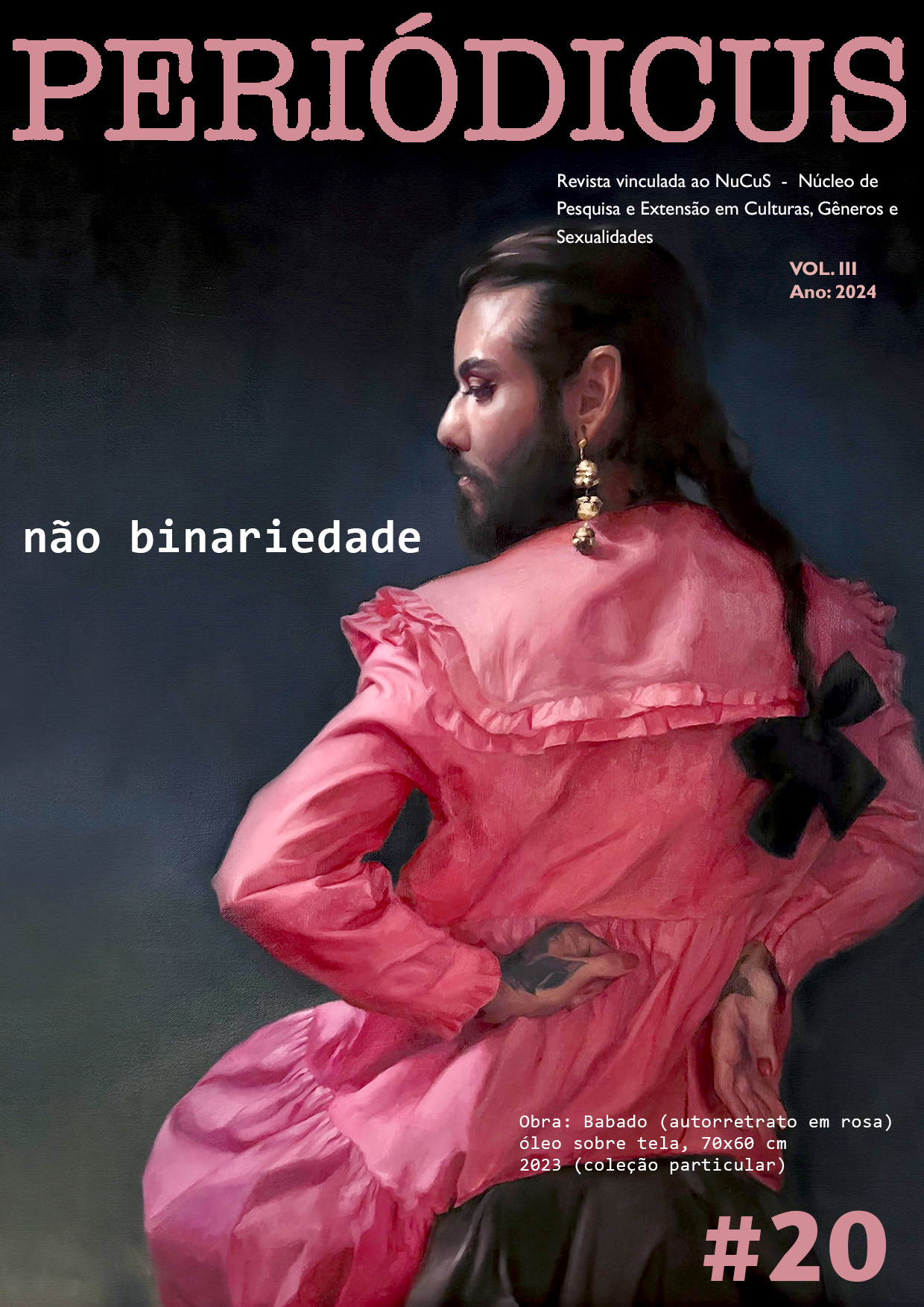The praxis in social movements
reflections on the performance of Coletive Não Binárie PB
DOI:
https://doi.org/10.9771/peri.v3i20.55706Abstract
Currently, non-binary people still need to gain space, rights and recognition in society. With that in mind, in 2021 we created the Coletive Não Binárie PB to bring together voices of gender dissidents and thus build a political force. However, when reflecting on the elements that condition the subalternization of experiences that deviate from sex/gender norms, we realize that it is important to design an action that is also based on theoretical reflections. Therefore, this brief text, which includes elements linked to the theoretical essay and the experience report, was written with the aim of promoting reflection on the performance of social movements based on the idea of praxis, considering the context of our experience with Coletive Não Binárie PB. On a theoretical level, we ask ourselves about the conditions under which sex and gender are constructed in society, and this leads us to an action based on questioning the social norms that produce and hierarchize differences.
Downloads
Downloads
Published
How to Cite
Issue
Section
License
Copyright (c) 2024 D'Angelles Vieira, Selme Cabral

This work is licensed under a Creative Commons Attribution-NonCommercial 4.0 International License.
Autores que publicam nesta revista concordam com os seguintes termos:
Autores mantêm os direitos autorais e concedem à revista o direito de primeira publicação, com o trabalho simultaneamente licenciado sob Licença Creative Commons Attribution Noncommercial que permite o compartilhamento do trabalho com reconhecimento da autoria e publicação inicial nesta revista, sendo vedado o uso com fins comerciais.
Autores têm autorização para assumir contratos adicionais separadamente, para distribuição não-exclusiva da versão do trabalho publicada nesta revista (ex.: publicar em repositório institucional ou como capítulo de livro), com reconhecimento de autoria e publicação inicial nesta revista.
Autores têm permissão e são estimulados a publicar e distribuir seu trabalho online (ex.: em repositórios institucionais ou na sua página pessoal) a qualquer ponto antes ou durante o processo editorial, já que isso pode gerar alterações produtivas, bem como aumentar o impacto e a citação do trabalho publicado (Veja O Efeito do Acesso Livre).







